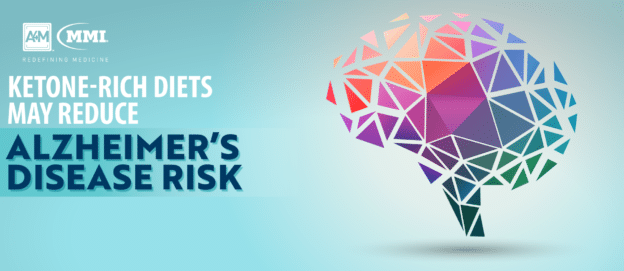Impaired mitochondrial function and abnormal neuronal network activity are thought to be some of the early signs of the development of Alzheimer’s disease, however, how mitochondrial alterations contribute to the abnormal activity in neural circuits and their connection to AD remains unknown.
SIRT3 in Mice with Alzheimer’s Disease
In a recent study published in the Journal of Neuroscience, Aiwu Chang, PhD, and her colleagues investigated the function of the mitochondrial protein by genetically reducing the levels of SIRT3 in mouse models of Alzheimer’s disease. Per their findings, mice with low levels of SIRT3 experienced a significantly higher mortality rate, more violent seizures, and increased interneuron death compared with mice from the standard Alzheimer’s disease model as well as the control group. Both male and female mice were observed to die prematurely before 5 months of age.
On the other hand, mice with reduced levels of SIRT3 who consumed a ketone-rich diet experienced fewer seizures and were less likely to die. Consuming the fatty acid also increased levels of SIRT3 in these mice. “When comparing male mice among different genotypes, SIRT3 haploinsufficiency renders GABAergic interneurons in the cerebral cortex vulnerable to degeneration and associated neuronal network hyperexcitability,” researchers wrote.
In short, SIRT3 proteins work to preserve GABAergic interneurons and protect cerebral circuits against hyperexcitability; this neuroprotective mechanism can potentially be reinforced by dietary ketone intake.
Ketone Consumption for Risk Reduction
The latest findings implicate that the consumption of ketones may be a way of protecting interneurons and delaying the progression of Alzheimer’s disease. By preserving mitochondrial function, SIRT3 protects interneurons against amyloid beta-induced dysfunction and degeneration in mice with Alzheimer’s disease. According to Dr. Chang and her team, “the neuronal network dysfunction that occurs in Alzheimer’s disease can be partially reversed by physiological, dietary, and pharmacological interventions to increase SIRT3 expression and enhance the functionality of GABAergic interneurons.”
Due to the growing popularity of the ketogenic diet – which can support weight loss, diabetes management, and several other health conditions – there is an increased awareness and availability of ketone-rich foods. Limiting carbohydrate consumptions and incorporating ketone-rich foods such as seafood, low carb vegetables, high-quality meat and poultry, and eggs into the diet may prove to have neuroprotective effects.
The study’s findings implicate the potential benefit of ketone consumption; however, the results need to be verified in human studies before any recommendations can be made. Further research is necessary to determine whether a ketogenic diet in humans may reduce Alzheimer’s disease risk and to what degree.




